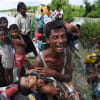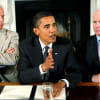Philippines to close Boracay resort to tourists for six months

The Philippines has announced its best-known holiday island Boracay will be closed to tourists for six months over concerns that the once idyllic white-sand resort has become a "cesspool" tainted by dumped sewage.
Philippine President Rodrigo Duterte ordered the shutdown to start April 26, his spokesman Harry Roque said late Wednesday on Twitter, without providing further detail.
The decision raises questions about the livelihoods of thousands employed as part of a bustling tourist trade that serves some two million guests on the island each year.
Boracay has some 500 tourism-related businesses, which had a combined annual revenue of 56 billion pesos ($1.07 billion) last year.
However in February Duterte blasted the tiny island's hotels, restaurants and other businesses, accusing them of dumping sewage directly into the sea and turning it into a "cesspool".
Officials have warned the island's drainage system is being used to send the untreated sewage into its surrounding turquoise waters.
The environment ministry says 195 businesses, along with more than 4,000 residential customers, are not connected to sewer lines.
In February the government said a total of 300 businesses faced "evaluation" for sanitary or other offences on the 1,000-hectare (2,470-acre) island, of which 51 had already been handed official warnings for violating environmental regulations.
Environment Undersecretary Jonas Leones told AFP last month a closure would involve having airlines and ferries suspend their Boracay services and making the beaches off-limits, and stationing police there "if necessary",
"An iron fist is needed to bring it back to its previous condition. It will be a temporary thing," Leones said.
The Boracay Foundation Inc., a business industry association on the island, had asked the government to shut down only those violating environmental laws.
"It's unfair for compliant establishments to be affected by the closure," Executive Director Pia Miraflores told AFP.
Miraflores said that even before the ban was announced, its shadow had hit some businesses hard in Boracay.
"The tour guides have already complained that they have no more guests. There's already a huge effect," she said, adding the quays and jetties were "less crowded" than before.
Some couples who scheduled their weddings on the island up to a year or two in advance had cancelled their reservations even before the ban was announced, she said, with the tour agents also besieged with client calls on whether to pursue their planned trips.
With more than 500 hotels, Boracay employs 17,000 people, apart from 11,000 construction workers working on new projects.

 For all latest news, follow The Daily Star's Google News channel.
For all latest news, follow The Daily Star's Google News channel. 







Comments